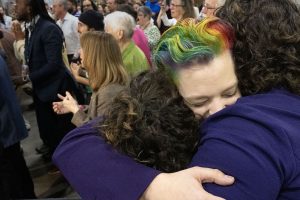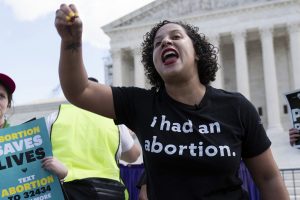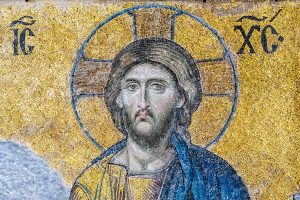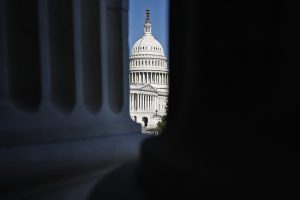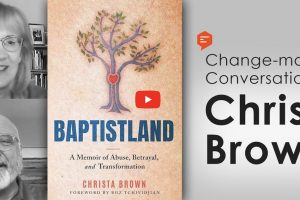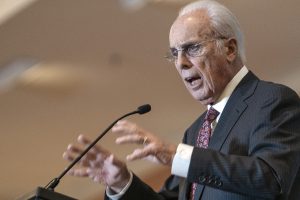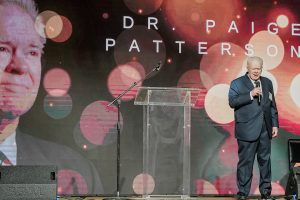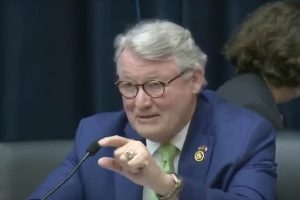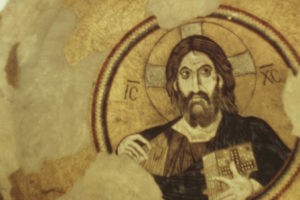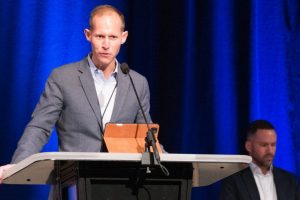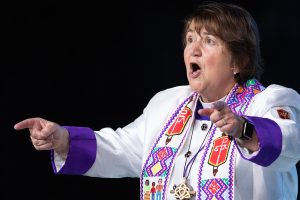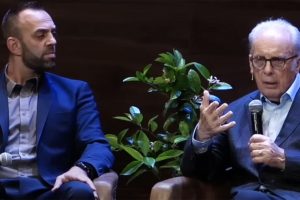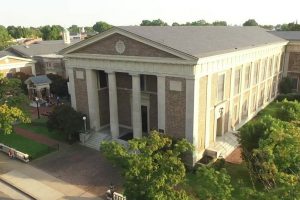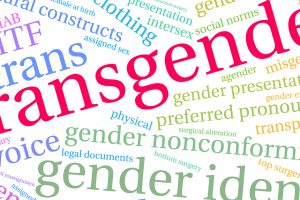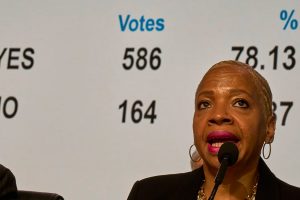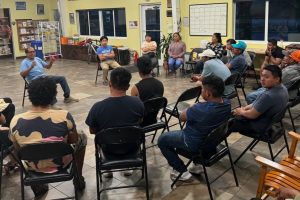Years ago during my sojourn at Southern Seminary, William Hendricks, my theology professor, told us of a young man who informed him, “God told me you shouldn't be teaching here anymore.” Professor Hendricks' response was direct and to the point: “And God told me you're crazy.”
I had occasion to recall this recently when Pat Robertson delivered his annual report of his own New Year's conversation with the Almighty, including the terrifying prospect of another terrorist attack, this time affecting not thousands but millions. Like a lot of other Christians, I don't know whether to roll my eyes at this bit of prophecy or try to ignore it. And I'll confess that the words of Dr. Hendricks are very tempting, and yet…
And yet, it is a conviction central to our faith that God does speak to people, or more to the point, to particular persons. He is, after all, the God of Abraham, Sarah, Moses and Paul. To Abraham and Sarah, God says, “Why did Sarah laugh [when I said she would bear a child]…Is anything too hard for the Lord?” To Moses, God declares, “Do not come near; put off our shoes…for the place on which you are standing is holy ground.” To Paul, God announces, “I am Jesus whom you are persecuting.” The God of Israel and Jesus is a God who reveals himself to us in word and deed. Is Robertson's claim any different?
Why, then, do we get nervous when people say, “God told me…”? One reason is that we're uncertain how to evaluate the truthfulness of such claims. Is a person simply invoking “God” to authorize his or her own hopes or fears or political agenda?
We are right to ask such questions. The testimony of the church universal is that we as individuals alone do not get to interpret the Bible or the voice of God. Certainly there are those who have believed otherwise. It is commonplace among Baptists to claim for the individual the right to interpret the Bible. Yet, if this is true, Pat Robertson's claim cannot be taken as wrong simply on its face.
The claim for the individual right to interpret the Bible is really more akin to gnosticism than Christianity. The Gnostics embraced a “spiritualized” faith that did not ultimately need the gathered community, the common Table, the preaching of the Word or the pools of baptism for the faithful living out of the gospel. Rather, they believed that they had unmediated access to God that bypassed God's revelation through Israel and the church.
Orthodox Christianity, however, took a different path. Following Israel, they understood that God created a people to be his body in and for the world. Such an astounding claim was ultimately made possible by the conviction that the risen Christ doesn't know the limitations of space and time. After the resurrection, Christ is enduringly present in his body, the church. At Pentecost, in fact, Peter sees the prophetic spirit poured on the whole church. “I will pour out my spirit on all flesh, and your sons and your daughters shall prophesy, and your young men shall see visions, and your old men shall dream dreams…” (Acts 2: 17) The whole body discerns the Spirit.
As ludicrous as someone like Robertson appears to be, it is equally dangerous to forget that the church does have a vital word to speak. The sons and daughters of the church ought to prophesy. To retreat into sociology, psychology and so forth is to become chaplains to a secular understanding of wisdom.
Prophecy therefore differs from fortune-telling. It is God's word to a people at a particular time for a particular purpose. The mistake that Robertson makes is supposing that the United States (or any other “nation”) holds any particular purpose in salvation history. The history of our nation will not allow us to discern the will of God, nor an authentic word. That gift is given to Israel and the Church, called to be a light for all nations.
-30-
— Beth Newman is Professor of Theology and Ethics at Baptist Theological Seminary at Richmond. [email protected]




